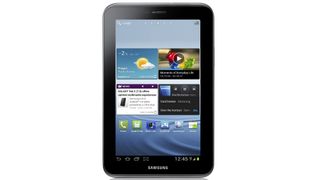
Samsung Galaxy tablets are making ground against the iPad among people wanting to use their devices for work, according to a survey from mobility services company iPass.
Its iPass Mobile Workforce Report shows that the iPad retains a strong lead among mobile workers surveyed who own or plan to buy a tablet in the next six months, with 50% owning and another 15% looking to buy.
But Samsung Galaxy now accounts for 16% of owners and 12% of those planning to buy, up from just 6% combined last year.
Similarly, Windows 8 tablets have nudged into the picture to account for 3% owned and 14% of plans to buy, while the iPad mini retains a stake with 7% and 18% respectively.
Workers are buying their own tablets rather than waiting for their employers to do so: the 79% of devices are personally owned, up from 74% a year ago.
iPass attributes this to the trend for 'bring your own device'. 72% of mobile workers believe their devices should be enabled for work, and 62% are using personal smartphones in their jobs.
Workers are also carrying fewer devices, with the average falling from 3.47 last year to 2.95. Their responses suggest that laptop usage is being reduced.
Are you a pro? Subscribe to our newsletter
Sign up to the TechRadar Pro newsletter to get all the top news, opinion, features and guidance your business needs to succeed!
Check out Samsung's
to discover loads more about the infinite possibilities of the GALAXY Note II
There are, however, worries about data usage costs undermining productivity. 42% of workers say that heavy charges or restrictions in their monthly plans force them to limit how much they download and upload.
Evan Kaplan, CEO of iPass, said: "We are seeing that mobile workers are becoming more cautious about exceeding data caps and deliberately limiting their data usage, which is hindering productivity. Clearly, enterprises that provision mobile workers with devices, or leverage a BYOD strategy, need to ensure that workers can connect when and where they want, and work on-the-go as cost-effectively and productively as possible."
The survey involved 1,625 responses from mobile workers worldwide in January and February 2013.
Most Popular



